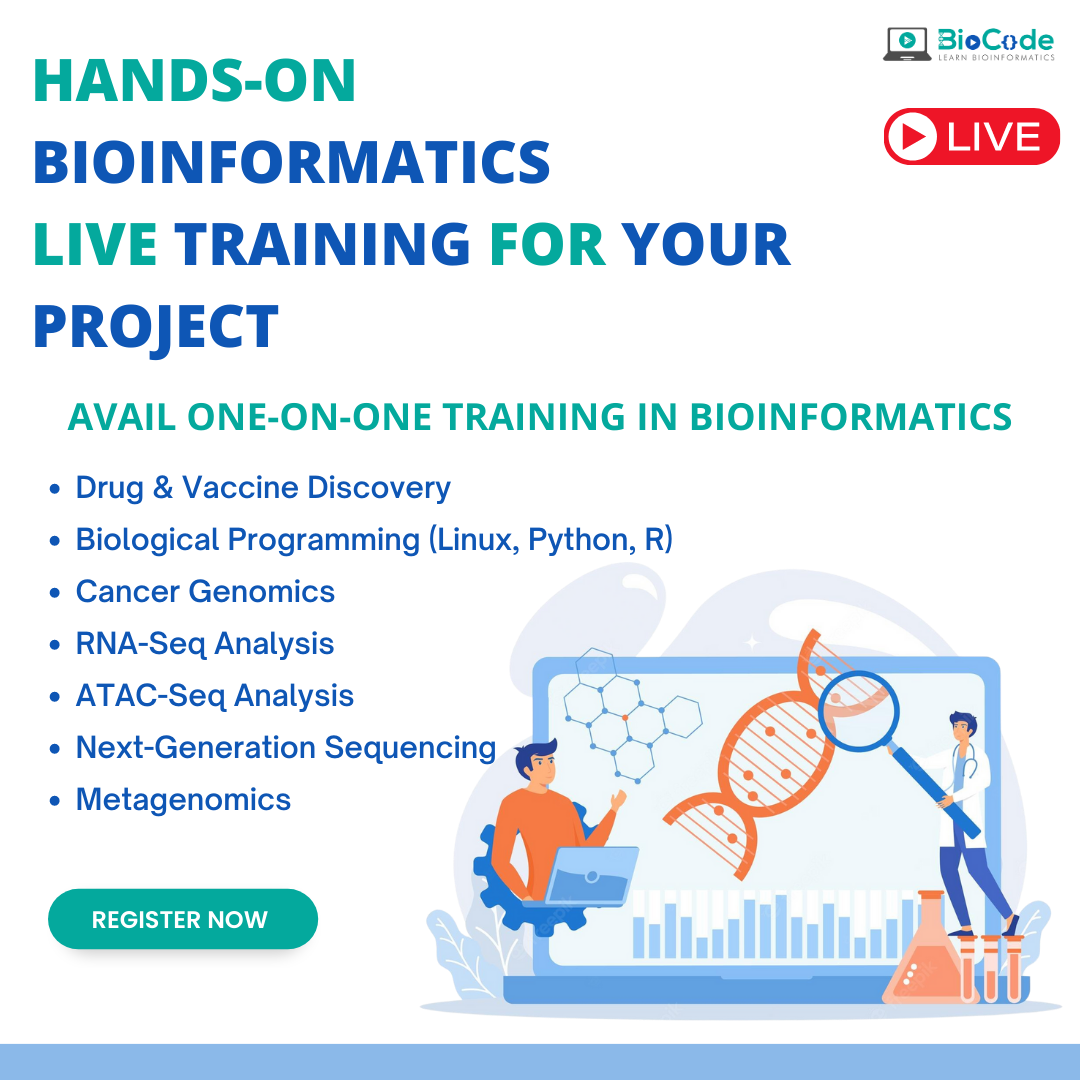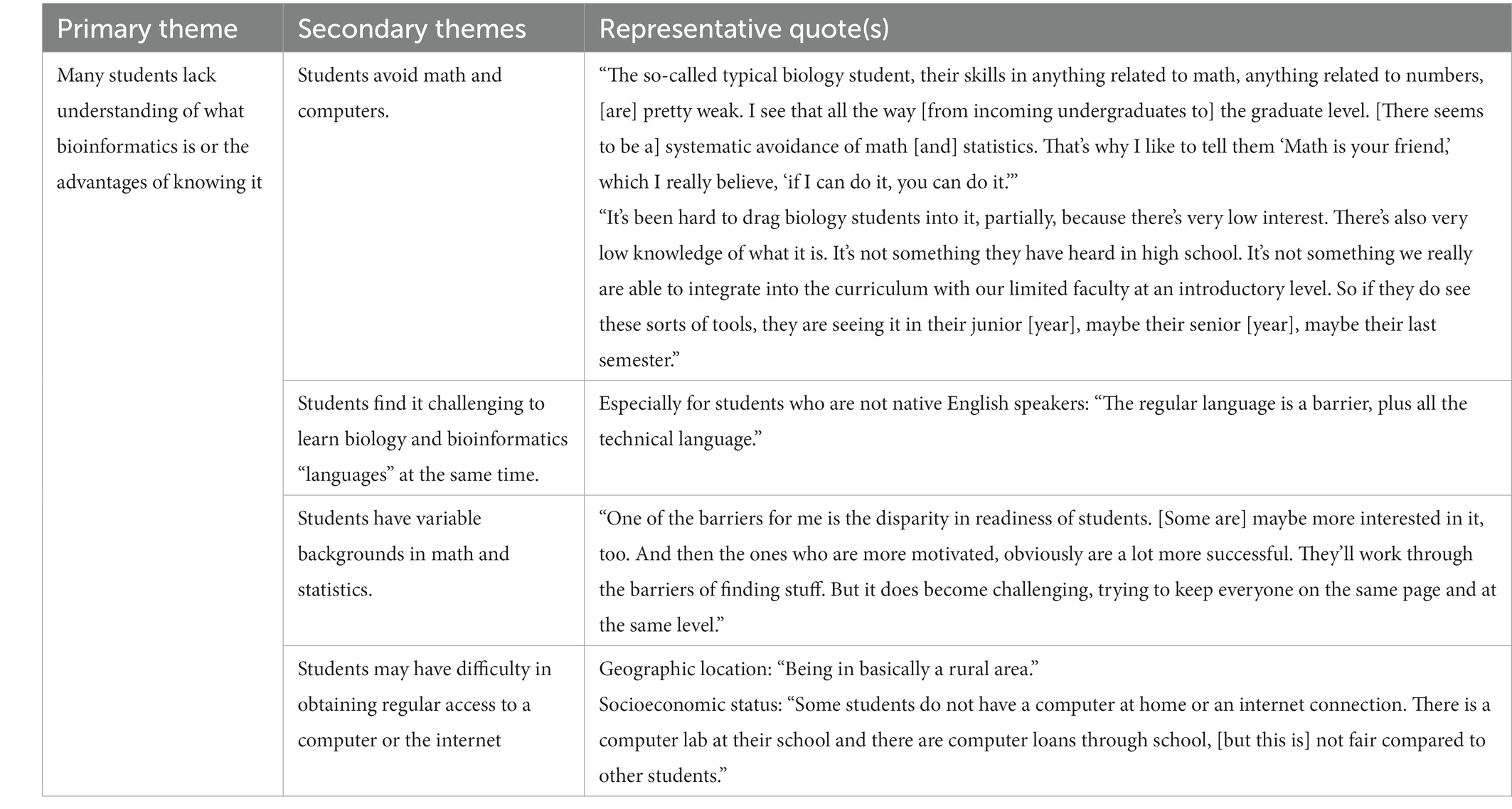An Unbiased View of Bioinformatics Tutor
Table of Contents4 Simple Techniques For Bioinformatics Tutor7 Easy Facts About Bioinformatics Tutor ExplainedWhat Does Bioinformatics Tutor Mean?Bioinformatics Tutor Fundamentals ExplainedBioinformatics Tutor - Questions
First project development is fairly time-consuming, as it involves cautious planning of the topic, structuring of deliverables, and factor to consider of the abilities and experience levels of participants. Nonetheless, once a project has actually been clearly specified and implemented, it has the prospective to be reused in future sessions with only minor modifications to mirror updates in the field or accommodate differences in individual backgrounds. This makes project-based learning a efficient and lasting teaching approach over time, particularly in swiftly progressing disciplines like bioinformatics.To make certain continuity and reproducibility of discovering, supplying common lab notebooks-- either electronic or physical-- is critical. These notebooks work as collective logs where pupils can record their development, code, approaches, and results throughout the program. Not just do they reinforce knowing by encouraging documentation and reflection, however they likewise work as post-course recommendation materials that participants can consult in future research or academic tasks.
Advisors play a vital function in the success of project-based programs. Advisors additionally act as duty versions and motivate pupils to proceed seeking occupations in computational biology and relevant areas.
The 7-Minute Rule for Bioinformatics Tutor
One more key facet of the understanding procedure is supplying participants the possibility to provide their work to others, specifically to an audience beyond their prompt job team. Final presentations or mini-conferences permit trainees to articulate their searchings for, get constructive feedback, and gain self-confidence in interacting scientific web content. This presentation part is commonly a favorite amongst students, as it confirms their efforts and highlights the real-world importance of their work.
The performance of this technique was evidenced by the extremely favorable comments obtained after the preliminary training course was provided. The success prompted repeat offerings of the exact same training course style in 2015 and 2016. Each model of the program was fine-tuned based on individual feedback and progressing best methods in rearing. These adaptations made sure that the core objectives-- hands-on discovering, collaboration, and applied analytic-- remained undamaged while increasing the depth and breadth of subjects covered.
A notable visualization that captured participant sentiment was a word cloud generated from responses to the 2014 end-of-course survey. This aesthetic responses enhanced the program's focus on experiential discovering and advisor assistance.
The payments of individuals such as Rustici, G., Orchard, S., Cowley, A., and Twells, R., together with other members of the EBI user-training-working team, were instrumental in refining the program structure and content. Their understandings aided form a comprehensive and versatile version that might be adapted to various institutional and local contexts.
10 Simple Techniques For Bioinformatics Tutor
Jones, Rasmussen, and Moffitt (1997) also promoted for interdisciplinary understanding through collaborative job job, noting its capability to imitate specialist settings and prepare pupils for future scholastic or sector duties. In an extensive evaluation, Thomas (2000) examined several studies on PBL and concluded that students not only execute well academically yet additionally create a much deeper understanding of the subject and improved synergy abilities.
In the context of bioinformatics education, innovative strategies like class games and simulation-based training have also been employed. As an example, Schneider and Jimenez (2013) presented the usage of interactive games to show biological information assimilation, making it possible for pupils to realize intricate concepts via experiential understanding. This kind of gamification matches the hands-on learning stressed in project-based training courses by introducing an aspect of fun and competition, which can further improve involvement.
Returning to the course gone over here, the lessons discovered from the implementation of project-based discovering in a bioinformatics setting have wider implications for various other STEM areas. The approach stresses not simply technical efficiency, yet additionally communication, partnership, and crucial thinking-- abilities that are increasingly valued in both academia and sector.
The Definitive Guide to Bioinformatics Tutor
The scalability of the course format also makes it a practical design for other organizations. With proper modification based upon neighborhood demands, readily available resources, and individual profiles, the framework can be replicated or adapted for usage in other clinical domains. In addition, the inclusion of structured mentorship and evaluation methods helps make sure consistent top special info quality and quantifiable understanding results.

In final thought, project-based learning in bioinformatics uses an effective technique to mentor facility, interdisciplinary content in a manner that is both easily accessible and intellectually promoting. By emphasizing partnership, practical application, and important questions, such initiatives not only enhance individual learning yet additionally contribute to the cultivation of a brand-new generation of innovative and skilled researchers.
Bioinformatics Tutor - The Facts

One more key aspect of the discovering process is providing participants the opportunity to offer their job to others, specifically to a target market past their prompt project team.In the wider educational literary works, project-based learning (PBL) has actually been extensively examined and confirmed as an efficient approach for advertising deep understanding, crucial thinking, and transferable skills. Adderley et al. (1975) emphasized the worth of project techniques in higher education and learning, noting that they advertise energetic learning and autonomy. Schneider and Jimenez (2013) introduced the use of interactive games to educate organic information combination, making it possible for students to realize complex concepts through experiential discovering.
Comments on “3 Simple Techniques For Bioinformatics Tutor”